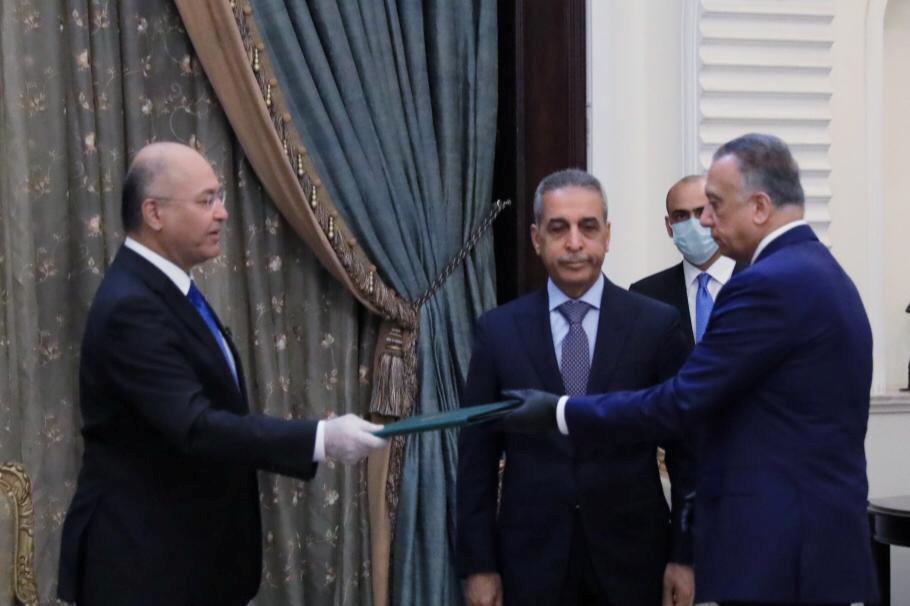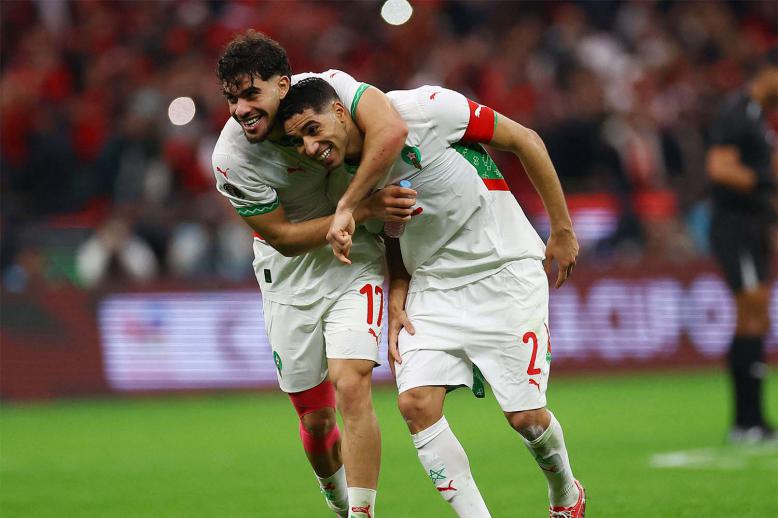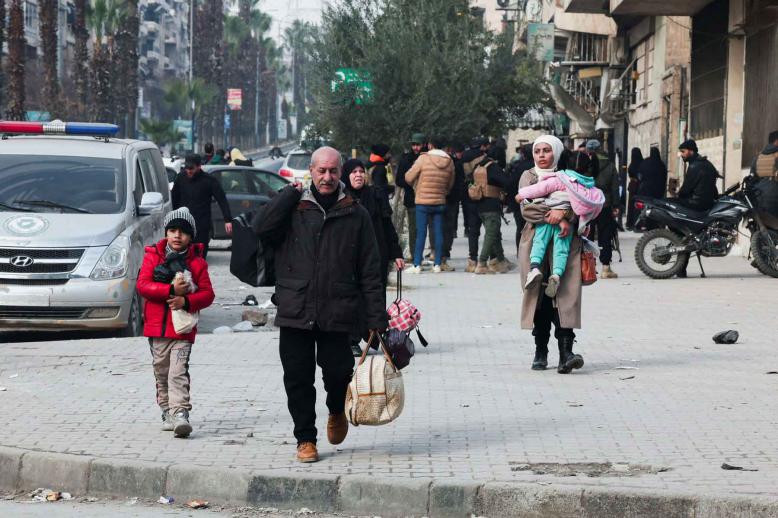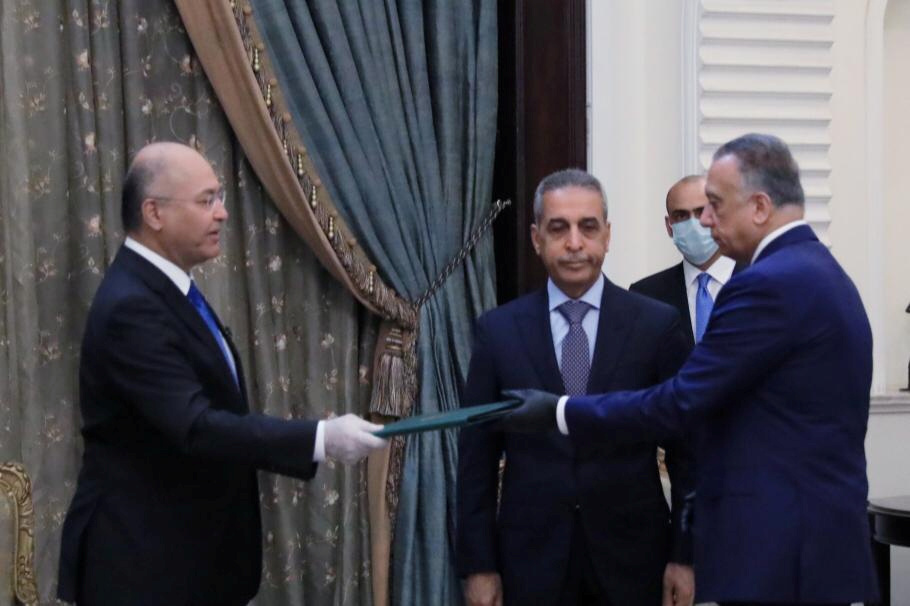Iraq appoints third PM-designate in ten weeks
BAGHDAD - Iraq's president named intelligence chief Mustafa al-Kadhimi as prime minister-designate on Thursday, the third person tapped to lead the country in just 10 weeks as it struggles to replace a government that fell last year after months of deadly protests.
Kadhimi was nominated by President Barham Salih, state television reported, shortly after the previous designated prime minister, Adnan al-Zurfi, announced he was withdrawing having failed to secure enough support to pass a government.
Zurfi's candidacy was imperiled in the preceding 48 hours when key Shiite parties rallied around Kadhimi to replace him. His chances were further diminished when the main Kurdish and Sunni blocs withdrew support for his candidacy.
He had largely faced resistance from Iran-backed Shiite parties who accused him of corruption and being too close to the US. Meanwhile Iraqi protesters campaigning for an overhaul of the Iraqi political system said he was merely another member of the country's corrupt leadership.
He had presented a government plan focusing on the economy, reconstruction and bringing arms under the control of the state, but fell short of producing a Cabinet lineup to parliament. On Thursday, Zurfi said in a statement he was pulling out, citing "internal and external reasons" for his decision without elaborating.
“I offer my apologies first to everyone who put their trust in us,” the statement said. "My decision not to proceed with my nomination is to preserve Iraq and its greatest interests."
Adel Abdul Mahdi, who resigned under pressure from anti-government protests in November, still heads the government as caretaker prime minister. Salih's first choice to replace him, Mohammed Allawi, also withdrew on March 1 after four fruitless weeks trying to gain support.
Like Salih's previous choices to replace Abdul Mahdi, Kadhimi is seen as a political independent, who will have to amass support from the powerful sectarian parties that dominate Iraq's legislature to approve a cabinet within a month. He has held his role heading intelligence since 2016.
Kadhimi is backed by parties across Iraq's fragmented political scene, and is seen as less likely to face the same set backs as Allawi and Zurfi.
He has long had close links with the United States but has also improved ties with Tehran in recent months. His nomination ceremony was attended by the country's top political figures, indicating widespread support that neither of the previous PM-designates had enjoyed.
That backing was the result of a flurry of political meetings over the past week aimed at reaching consensus over his nomination. Among them were gatherings attended by Iranian General Ismail Qaani, who has headed Iran's powerful Quds Force foreign operations unit since a US drone strike in Baghdad killed his predecessor Qasem Soleimani in January.
Tehran holds vast political and military influence in Iraq, and its approval is seen as necessary for any prime ministerial candidate.
“With my mandate to lead the Iraqi government, I pledge to my honorable people to work to form a government that puts the aspirations and demands of Iraqis as the top priority,” Kadhimi tweeted shortly after his appointment was announced.
Born in Baghdad in 1967, Kadhimi studied law in Iraq but then left for Europe to escape repressive ex-president Saddam Hussein, working as an opposition journalist.
After the US-led invasion of 2003 toppled Saddam, Kadhimi returned to help launch the Iraqi Media Network, archived crimes of the former regime at the Iraqi Memory Foundation and worked as a human rights advocate. But he made an unusual career jump in 2016, when then prime minister Haider al-Abadi handpicked him to head the National Intelligence Service at the height of Iraq's war against the Islamic State jihadist group.
It was there, sources close to Kadhimi say, that he formed his uniquely close links with top players of key nations including in Washington, London and Riyadh.
In January, the same Shiite factions that had vehemently opposed Zurfi due to his close ties to the US also accused Kadhimi of being involved in the US strike that killed Soleimani and the influential Iraqi commander Abu Mahdi al-Muhandis.
Since then, Kadhimi had worked through Abdul Mahdi's influential chief of staff Mohammad al-Hashemi to repair ties to Iran and its allies in Iraq. With pro-Tehran factions nominally on board, Kadhimi has a Shiite-wide consensus that the previous PM-designates lacked.
Nevertheless, Kadhimi has ascended to the role at a challenging time for Iraq, exhausted by decades of sanctions, war and political corruption. The country is now facing social unrest as well as a budget crisis brought on by the collapse in world oil prices and the spread of the novel coronavirus.
There are also ever-increasing tensions between arch rivals Tehran and Washington, two powers who are hugely influential in Iraqi politics. The US appears ready to take a harder line against Baghdad, seeing it as too friendly with Iran. Last month, it granted Iraq its shortest sanctions waiver yet, set to expire in two weeks, to keep importing crucial gas from Iran to keep its power stations on.






